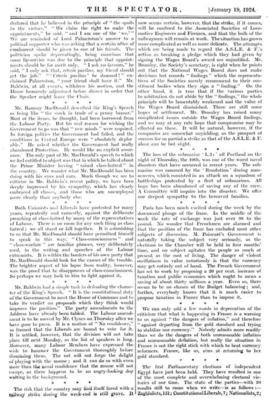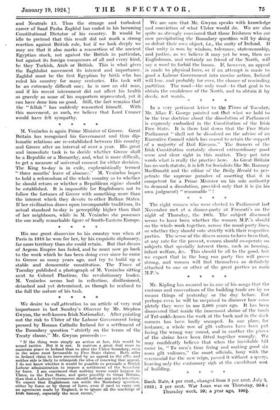The first Parliamentary elections of independent Egypt have just been
held. They have resulted in one of the most complete and overwhelming electoral vic- tories of our time. The state of the parties—with 39 results still to come when we write—is as follows ZaglattlistS? f;10115titutiona1Liberals, 7; Nationalists, 2; and Neutrals 15. Thus the strange and turbulent career of Saad Pasha Zaghlul has ended in his becoming Constitutional Dictator of his country. It would be idle to pretend that this result did not mark a strong reaction against British rule, but if we look deeply we may see that it also marks a reassertion of the ancient Egyptian stock, not against the British in particular, but against its foreign conquerors of all and every kind, be they Turkish, Arab or British. This is what gives the Zaghlulist movement its interest and importance. Zaghlul must be the first Egyptian by birth who has ruled his country for many centuries. His task will be an extremely difficult one; he is now an old man, and if his recent internment did not affect his health as gravely as some of his supporters represented, yet it can have done him no good. Still, the fact remains that the " fellah " has suddenly reasserted himself. With this movement, as such, we believe that Lord Cromer would have felt sympathy.
* * * *











































 Previous page
Previous page